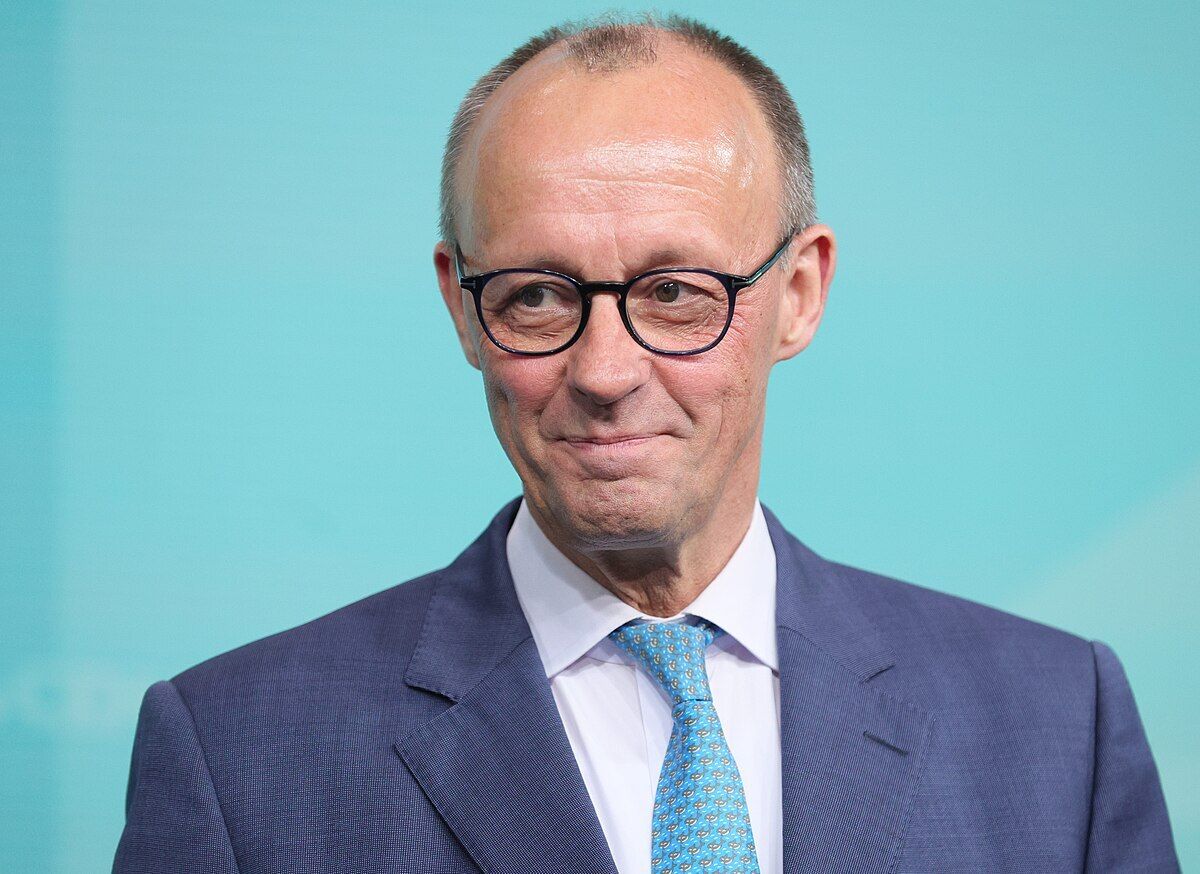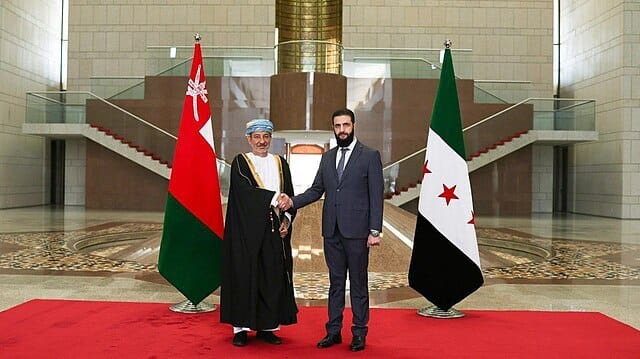- Stratagem
- Posts
- 🌎BBB Weekly Edition #3🌎
🌎BBB Weekly Edition #3🌎
📝Germany Shifts Right While Pope Francis’s Declining Health Fuels Speculation that the Holy See will too 📌

🚨What We’re Watching🎥
📍The Center-Right Wins German Elections Signaling New Directions for Europe
📚Facts: Germany held their federal election last week to elect their 21st Bundestag, an earlier election than scheduled due to the collapse of Chancellor Scholz's ruling coalition. The center-right Christian Democrat Union (CDU) won 28.5% of the vote, making Friedrich Merz the likely next Chancellor. The far-right Alternative for Germany (AfD) won 20.8% of the vote, doubling its vote share from the 2021 federal elections. Die Linke, the far-left party, won 9% of the vote, exceeding expectations after previously polling much lower.
💭Analysis: Merz will face major obstacles in forming a successful coalition due to AfD's strong vote share and Germany’s growing political fragmentation. The doubled vote share for AfD signals a political shift rightwards, partially due to broad discontent with the state of the economy and increased immigration. AfD’s electoral win in East Germany likewise signals increased regional divisions. On election night, incoming Chancellor Merz pledged to achieve independence from the United States by developing closer economic and defense links with European states. Europe faces mounting pressure to respond to Trump’s tariff threats and proposed Ukraine peace deal. Merz’s first priority is to strengthen and unify the EU to address these challenges, decisions that could define the future of European defense and the outcome of the Russia-Ukraine war.
📍Pope Francis’s Deteriorating Health Fuels Speculation of a New Pope’s Impact on International Diplomacy.
📚Facts: Pope Francis remains in critical condition after being admitted to Rome’s Gemelli Hospital on February 24. He was diagnosed with pneumonia and signs of kidney failure and, most recently, is suffering from coughing attacks. The pontiff is seen as one of the most progressive popes so far, striking controversy with more liberal views on the LGBTQ and the role of women and ministry. Pope Francis criticized the Trump administration’s migration policy and reductions on humanitarian aid. There are about 1.376 billion baptized Catholics, making up almost 18 percent of the global population. Pope Francis’s approval rating has decreased from a high of 90 percent in 2022 to 78 percent in 2025, while Benedict’s approval sat at 74 percent and John Paul II’s at 93 percent.
💭Analysis: In the wake of the Pope’s health crisis, observers have speculated that Pope Francis’s successor will be more conservative. The pontiff’s predecessor, Pope Benedict XVI, upheld traditionalist views on issues like women in ministry, LGBTQ rights, and contraception. Pope Francis, while not overturning major church teachings on these subjects, emphasized the social role of the church and the need to take a more inclusive approach to the LGBTQ community. This potential shift in papal leadership to more conservative stances like that of Benedict's could influence international diplomacy and humanitarian efforts, particularly in areas such as immigration, LGBTQ rights, and global environmental policies.
📍Ukraine-United States Rare Earth Mineral Deal Collapses
📚Facts: U.S. President Donald Trump hosted Ukrainian President Volodymyr Zelenskyy at the White House on February 28, 2025, to sign the U.S.-Ukraine Mineral-Rights Agreement. Zelenskyy left the meeting without signing the agreement after a public argument between the two in the Oval Office. The mineral rights deal was set to provide a joint investment fund between the two nations with 50% of revenues from exports of state-owned critical resources in Ukraine. The fund would then invest in reconstruction projects in Ukraine, and profits from the projects would be split between the two nations. Now, however, the deal has collapsed, and with the United States halting all military aid to Ukraine, it appears unlikely that the goodwill exists on either side for another agreement.
💭Analysis: Since coming into office, Trump has presided over a radical shift in U.S. policy towards Ukraine. The United States has begun to aggressively pressure Ukraine to sign a peace agreement with Russia, while also seeking a highly favorable agreement on critical minerals. Securing a supply of critical minerals has become an important United States policy priority, as the United States extracts very few Domestically. Much of the current critical mineral production occurs in unstable or hostile areas, including central Africa, China. Furthermore Russia and China are responsible for the majority of global critical mineral processing. Critical minerals are necessary to manufacture electrical and computer components and are necessary to sustain a clean energy transition. The failure of the deal will not affect American access to critical minerals in the short-term but could weaken its ability to develop alternate supply chains.
📍Tariffs on China: Consumer Giants and Chinese Laborers Begin to Pay the Price
📚Facts: On the first day of the Trump administration, the U.S. enacted a 10% tariff on Chinese imports pressuring the Chinese government to crack down on fentanyl producers and drug smugglers. Chinese exporters have attempted to circumvent these taxes since they rely on billions of dollars worth of exports shipped to the US every year. At the same time, producers are looking for ways to maintain their bottom line in the face of heavy tariffs. They have begun to pressure workers to speed up the quantity of goods produced, in order to reduce their average cost. Nevertheless, American companies like Walmart are encouraging their suppliers to move production to other Asian countries with lower tariffs relative to China.
💭Analysis: Walmart’s stock price has fallen in recent weeks due to investor fears that the Trump administration’s tariffs will raise prices on everyday essentials like coffee and gasoline. The stock price fell despite a strong earnings report for the last quarter of 2024. Walmart, and their investors, anticipate that earnings will slow in 2025 because of a reduction in consumer spending in part due to higher prices from tariffs. American businesses are working to shift their supply chains away from Chinese manufacturing to reduce costs. Some speculate that the greatest costs of these tariffs will fall on Chinese laborers who are likely to face increased hours, lower pay, and possibly unemployment.
👀Looking Back👀
📍Syria Builds a New Government Following National Dialogue Conference
📚Facts: Hundreds of Syrian activists and community leaders attended a conference in Damascus on February 25 to plan a new constitution following the end of Syria’s civil war and the fall of the decades-long Assad regime. Attendees discussed the justice system, the constitution, the role of state institutions, personal freedoms, economic model, and civil society. The conference highlighted the need for human rights, justice, freedom, and equality for all. The closing statement expressed support for women in all roles and condemned discrimination, but also rejected calls for quotas of ethnic and religious minorities in government. The event was hosted by the interim government set to take transitional power on March 1.
💭Analysis: The EU eased energy and banking sanctions on Syria on February 25 in hopes of encouraging citizen participation in reconstruction, but the remaining American sanctions may deter international business from returning to the country. This policy may limit the efficacy of the EU’s policy. Syria needs to be able to pay its government workers and rebuild. Consequently the outcomes of both the sanctions and the dialogue conference will shape Syria’s new constitution and stability. Syrian president Ahmed al-Sharaa was in attendance, but some doubt lingers about his intentions due to his former affiliation with al-Qaeda. There hasn’t been public discussion on the path the transitional government will take either.
💡The TSI Insider💡
The TSI Professional Development Team of Juliano, Gisèle, and Xander are building a mentorship program for our members. The goal is to connect underclassmen with upperclassmen and young professionals in international relations to build community and learn about opportunities in the field. These relationships will help students maximize their time in university and prepare to make meaningful contributions upon graduation!
🚗One For The Road🚗
The BBB will not be publishing a newsletter on March 11th due to spring break. We will miss keeping our readers updated on the current international climate. See you in two weeks for our fourth newsletter!
Not a subscriber? Click here to subscribe!
See You On Thursday For 🌊The Deep Dive!🌊
This week’s newsletter brought to you by the Beyond Borders Brief staff. Connect with us on social media to pose questions, comments, or feedback. Click here to learn more about TSI.


Reply